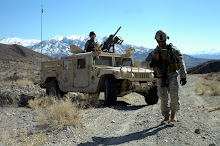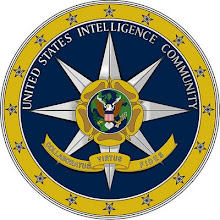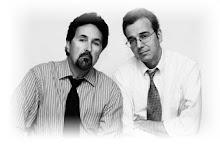By Steve Hammons
As we increasingly look at our human capital to assess where we have been, where we are now and where we are going, it is probably helpful to consider the current overall understanding of human consciousness.
That is no easy task. The vague and varied nature of the human mind can be challenging to comprehend. It is not always readily visible, measurable or observable, although outward behavior and appearance stemming from consciousness is.
In our everyday lives, we can look at elements of society such as economic development, educational systems, health care, defense and intelligence activities, cultural creativity and social cohesion that reflect the current state of our comprehension of human consciousness.
At the heart of these endeavors is human consciousness, so trying to understand and optimize it seems worthwhile. When we consider deploying communication, information and education about consciousness, domestically or in the context of international soft power or smart power, what are some of the elements involved?
ASPECTS OF CONSCIOUSNESS
Although there are indications that consciousness itself can be utilized in interesting ways, more likely we are generally referring to practical and deployable communication, information and education about it. It is the development and understanding of a perspective on the human race and the current state of our societies and our world.
By using the viewpoint on and of human consciousness, we might be able to transcend many obstacles to problem-solving, rapport-building and creative, innovative approaches and solutions.
So what is particularly interesting about consciousness that might arouse the interest of average people, friends and adversaries?
First, we all have it. We can call consciousness the human mind, human psychology, awareness, perception or even a spirit or soul, depending on our perspectives and what elements we are discussing.
There are a few interesting aspects to consider.
One is that, generally, it is accepted in mainstream psychology that we have a conscious mind, a subconscious and a border area between the two.
In addition, various kinds of philosophies, spiritual beliefs and some significant modern research make reference to the connection between an individual person’s mind and a larger power, force, intelligence or field of some kind. Many different names are given to this in different cultural, philosophical and scientific contexts.
Another fascinating topic is the indication that human consciousness has a “sixth sense” that can pick up information and understanding that is not available to our other five senses of sight, hearing, touch, smell and taste.
The sixth sense can bubble up from the unconscious and enter into the conscious. We might call it intuition, instincts, hunches, gut feelings or something else. This might manifest itself in our nighttime dreams or even daydreams as the unconscious becomes more active in relation to our conscious logical-thinking brains.
In his 1972 book "The Natural Mind," Andrew Weil, M.D., hypothesized that the human mind may have a natural inclination to seek understanding of a wider and deeper consciousness because the mind knows there is more to itself – and more to a possibly larger cosmic mind.
Weil is an advocate of "integrative medicine" and medical school professor at the University of Arizona.
Weil thought that perhaps people have throughout human history then used prayer, meditation, fasting, exciting or dangerous activities, vision quests or even psychoactive plants (including fermented plants), cacti, mushrooms and other fungi to explore human consciousness.
Optimizing our understanding of these and other elements of human consciousness and behavior through communication, information and education might be helpful in wide and deep ways.
DEPLOYING COMMUNICATION
Although human consciousness is not always easily understood or measured, we know that as a general concept, it includes thoughts, feelings, emotions, dreams, beliefs, perceptions, awareness and similar kinds of characteristics.
And now that we suspect, based on credible research, that human consciousness also probably has abilities to tap a sixth sense, this adds to our more conventional understanding of ourselves and others.
A natural question may arise as to if it is wise to inform troubled people or international adversaries that their minds and consciousness might be worth exploring further along these lines.
One answer to this may be that research into human consciousness and even “anomalous” abilities such as the sixth sense (which actually are probably very natural and normal) are almost common knowledge nowadays. We find information on this in books, movies, articles and all over the Web. The information is in the public domain or what is sometimes called open source intelligence.
When the U.S. government’s defense and intelligence communities started researching this in the 1970s, it was in response to the old Soviet Union’s activities in these areas. China has also reportedly conducted research on human consciousness and human abilities along these lines.
This kind of research was later referred to as a component of “transcendent warfare.”
We might take a leap of faith and assume that as people understand themselves, their social and psychological programming, their own personal histories and the deeper and transcendent nature within and around them, they will grow as constructive human beings.
In fact, some of the research in human consciousness seems to include a faith-based component. That is, when we try to understand deeper possible realities – whether using psychology, spirituality, biology, quantum physics or other methods – things sometimes get mysterious and not necessarily logical.
Unusual phenomena, synchronicity (odd and meaningful coincidences) or other things that seem to be authentic and can be perceived by us might sometimes occur.
If we try our best to understand, communicate and educate ourselves and others about some of the emerging and leading-edge developments regarding human consciousness, we might be able to optimize these real resources and assets.
skip to main |
skip to sidebar

In the past 30 days, readers from approximately 40 countries or territories using about 20 languages visited the Joint Recon Study Group site.

To see more articles, scroll down the right-side column.

Steve Hammons

Articles from the Joint Recon Study Group site and Transcendent TV & Media site are included.
The Joint Reconnaissance Study Group is the San Diego-based, combined-service/agency, research-and-activities team in my novels "Mission Into Light" and sequel "Light's Hand." This site contains information of interest to the JRSG.
Home page: Joint Recon Study Group site
Readers from around the world visit this site.

In the past 30 days, readers from approximately 40 countries or territories using about 20 languages visited the Joint Recon Study Group site.
April 2021 threat alert: ‘Force protection’ for our troops now the responsibility of all Americans
First responders must deal with society’s problems, shortcomings, injustices every day
Could some UFOs be linked to Native American 'white stone canoe' legends, stories?
Wildland firefighter basic training available at community colleges, tech schools, training centers
‘Boomer remover’ coronavirus is bigger threat to WWII generation that saved the world
‘Black swan’ events that aren’t: Coronavirus, climate emergency, unidentified aerial phenonema
Reagan’s complete 1987 UN message on ‘alien threat’ overlooked: Grave danger here, now
Was Reagan briefed about UFOs and original ‘Day the Earth Stood Still’ movie?
My military draft lottery number was #165 during final Vietnam War years
“Keep On The Sunny Side,” by The Whites, from movie O Brother, Where Art Thou?”
Living along Ohio River for centuries, Native Shawnee called it ‘Kiskepila Sepe’ – ‘Eagle River’
Native American words around us: States, towns, rivers, lakes, terrain, plants, animals, military
Athens County, Ohio, was key spot when colonists, Redcoats fought Shawnee in 1774 battle
1787 Northwest Ordinance set course for Ohio, Indiana, Illinois, Michigan, Wisconsin, Minnesota
Smallpox-tainted blankets were 1763 bioweapon on northern Appalachian Mountains frontier
Diana Krall performs “Maybe You’ll Be There" live in Paris with Paris Symphony Orchestra 2001.
Books to read in 2021? Novels "Mission Into Light" and the sequel "Light's Hand"
Novel excerpt: Renew, prepare America with ‘Urgent Response Group’ for teens, young adults
Diana Krall performs “I Get Along” live in Paris with Paris Symphony Orchestra 2001.
Steve Tyrell sings “Give Me the Simple Life.”
Diana Krall performs “Love Letters” live in Paris with Paris Symphony Orchestra 2001.
Visit the article archives!

To see more articles, scroll down the right-side column.
Novel "Mission Into Light" overview on Amazon
Novel "Light's Hand" overview on Amazon
Adventures of the Joint Recon Study Group: Overview and synopses of activities and operations
Key chapter overviews: Points of interest in the novel "Mission Into Light"
Key chapter overviews: Points of interest in the novel "Light's Hand"
Multimedia rights available
English and foreign-language book rights, audio book and e-book rights for "Mission Into Light" and "Light's Hand" are available. Movie and TV rights are available.
I'm seeking agent representation for these works and rights.
Please contact Steve Hammons for more information at hammons55@gmail.com.
Feature film screenplay
I completed a feature film screenplay in 2006 based on “Mission Into Light” and “Light’s Hand” combining key elements of both novels.
The screenplay takes audiences into the adventures and discoveries of the Joint Recon Study Group and the relationships among team members, friends and associates as they explore leading-edge research and emerging transcendent developments.
I'm seeking agent representation for this screenplay.
.........................
I also wrote a TV series pilot script based on "Mission Into Light" and "Light's Hand" story. I'm seeking agent representation this script.
About the Author

Steve Hammons
About the Author
I was born and raised in southwestern Ohio near the Kentucky and Indiana borders, then went to college at Ohio University in the southeastern Appalachian region of the state near West Virginia.
I graduated with a dual major in communication (journalism focus) and health education (psychology focus) with a minor in pre-law.
Ohio U. is home to the respected Scripps College of Communication and E.W. Scripps School of Journalism.
I also completed two graduate-level courses in guidance counseling theory and method at Ohio U.'s College of Education, School of Applied Behavioral Sciences and Educational Leadership.
At the end of my undergraduate education at Ohio University, I moved to the beautiful American Southwest where I applied my education, continual training and and ongoing experience to related professional fields such as health care, journalism and special research areas.
My novels "Mission Into Light" and the sequel "Light’s Hand" are available in e-book and 6"x9" paperback from most online booksellers worldwide.
Readers review metaphysical-military-intelligence adventure novel ‘Mission Into Light’
My articles on DoD CultureReady blog, Defense Language and National Security Education Office
Transcendent TV & Media site
Past articles: Scroll down the right-side column for more articles.

Articles from the Joint Recon Study Group site and Transcendent TV & Media site are included.
New films, TV series, books tell stories of ‘Ohiyo’ River Appalachian mountain region
Hillbillies, pioneers and UFOs: Current major media projects explore southern Ohio
Well-known ‘Mothman’ case also about dedicated local journalist, Native history?
Film experts, fans celebrate rediscovery of Appalachian story ‘Spring Night Summer Night’
'Hillbilly' J.D. Vance, columnist Clarence Page find common ground in southwest Ohio roots
‘Phoenix lights’ UFO linked to multiple incidents around four-state Colorado Plateau?
UFOs, odd phenomena reported on perimeter of Colorado Plateau
Theory about 37th parallel and UFOs sparked book, TV shows, film concept
Sketchy dimensions: UFO investigations reveal need for caution, potential for beneficial discovery
Can UFO-acquired technologies help the U.S. economy?
Many Americans have Cherokee in the family tree
Americans with Cherokee roots can't rely on government bureaucracies to define them
Government-approved Cherokees don’t tell whole story?
Does tribal government politician speak for all Americans with Cherokee ancestry?
‘Official Cherokees’ disrespecting mixed-ethnicity Americans?
Could ‘Hillbilly Elegy’ author J.D. Vance have Appalachian Cherokee ancestry?
Journalism’s dilemma: Covering weird science
Movie ‘Sedona’ explores metaphysical mysteries, Nature’s beauty, human heart
Novel excerpt: Insight, understanding not always found in official reports, documents
Novel excerpt: From Sedona to Heaven – What is the dimension we call ‘Heaven?’
Interest grows in healthy aging, anti-aging, reverse-aging, transcendent aging
Analysis: Research company involved with UFOs opens up about activities
Startup company researching advanced tech, UFOs gives updates during Q&A
Leverage US resources to understand unknown objects encountered by Navy, defense expert says
US Navy UFO encounters: Space scientists speculate on ‘first contact’ with visitors
UFOs in the heartland: New movie, ‘Blue Book’ TV series set in southwestern Ohio
Year of UFOs, 1952, may play role in Disney movie ‘Tomorrowland’
UFO situation awareness: Phoenix conference hosts scientists, researchers, media, public
Appropriate security on UFOs probably 2-way street
Roswell was ET crash, says ex-CIA officer – what’s been going on since 1947?
Alleged briefing to Pres. Reagan: Original ‘Day the Earth Stood Still’ was UFO acclimation?
Beyond UFOs and extraterrestrials: Human consciousness
Journalism in media mix: New shows ‘Chasing UFOs,’ ‘Spacing Out’ help prepare public
Further UFO disclosure requires readiness, teamwork, education, intelligence
Disclosure, acclimation, security work together on UFO, ET challenges
Up to speed on UFOs and intelligent visitors? Revised ‘A.D. After Disclosure’ book released in May
Authors Zabel, Dolan explore adjusting to UFO truths in new book ‘A.D. After Disclosure’
Blog Archive
-
▼
2009
(34)
-
▼
February
(8)
- Beyond soft power and smart power: Transcendent power
- Deploy soft power communication on human conscious...
- Arizona film, TV projects explore unusual topics, ...
- Should U.S. government release more data on UFOs?
- New intel group IARPA should explore soft power
- Funding for ‘soft power’ R&D needed now
- DARPA, In-Q-Tel can expand efforts for U.S.
- Algae-based jet fuel gets DARPA funding
-
▼
February
(8)































































































































































































